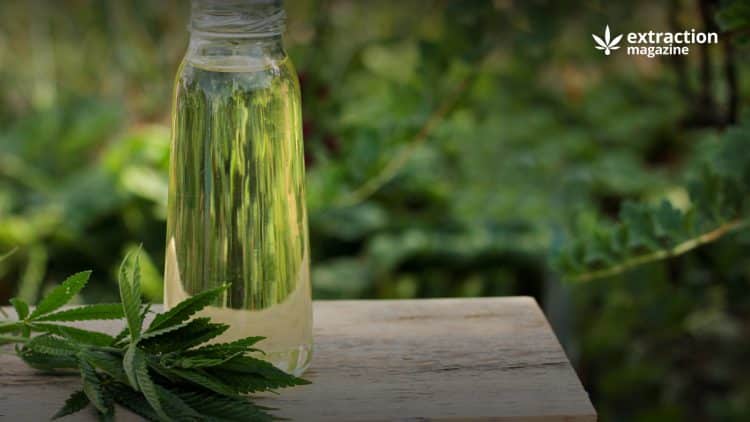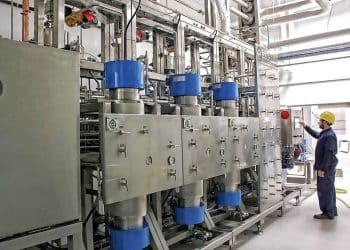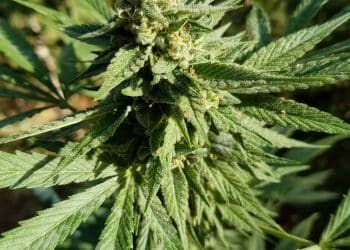The use of biodiesel as a sustainable alternative to petroleum diesel has gained widespread attention in recent years thanks to climate change and other factors. Biodiesel is produced from natural and renewable sources, such as vegetable oils, animal fats, and algae. One of the most promising sources for biodiesel production is industrial hemp, a versatile plant that has a wide range of applications. Hemp biodiesel may be the next frontier in renewable energy.
What is biodiesel?
Before we dive into the specifics of hemp biodiesel, it’s essential to understand what biodiesel is. Biodiesel is a renewable and sustainable fuel that is produced from biomass. It is made through a process called transesterification, which involves reacting vegetable oils or animal fats with an alcohol and a catalyst to produce a fatty acid methyl ester (FAME) and glycerol. FAME is the primary component of biodiesel and can be used as a drop-in replacement for petroleum diesel in most diesel engines. [1]
Biofuels have emerged as one of the most promising alternatives to fossil fuels. As we become more aware of the adverse effects of climate change, moving towards renewable and sustainable energy sources has become critical. Biofuels present a significant opportunity to reduce our dependence on fossil fuels that emit harmful greenhouse gases when combusted. The implementation of biofuels could have a significant impact on reducing carbon emissions and slowing down the progression of climate change.
How is Hemp Biodiesel Made?
Hemp biodiesel is produced from the oil extracted from the seeds of the industrial hemp plant. The hemp seed oil is extracted through a process called mechanical pressing, which involves crushing the seeds to extract the oil. The oil is then subjected to transesterification to produce FAME, which is the primary component of biodiesel.
Compared to other sources of biodiesel, hemp has a relatively high oil content, which makes it an attractive alternative for biodiesel production. Leftover biomass from hemp processing can also be used for other applications, such as animal feed or organic fertilizer. [2]
Pros and Cons of Hemp Biodiesel
Like any renewable energy source, hemp biodiesel has its advantages and challenges. Here are some of the most notable pros and cons of hemp biodiesel:
Pros
- Sustainable and renewable: Hemp biodiesel is produced from a renewable and sustainable plant source, making it a more environmentally friendly alternative to petroleum diesel;
- Reduced emissions: Biodiesel has lower emissions of carbon monoxide, particulate matter, and other harmful pollutants than petroleum diesel, making it a cleaner burning fuel;
- Cost-effective: Biodiesel is cost-competitive with petroleum diesel and can be produced from a variety of low-cost feedstock;
- Energy independence: Using biodiesel reduces dependence on foreign oil and promotes energy independence.
Cons
- Land-use competition: Biodiesel production from hemp could compete with other agricultural crops for land use, potentially leading to price increases for food and other crops;
- Limited scalability: Biodiesel production is limited by the availability of feedstock, and there may not be enough industrial hemp grown to meet global demand;
- Technical challenges: Biodiesel may require engine modifications or upgrades to handle the different properties of the fuel.
The Potential of Industrial Hemp for Bioenergy Production
Industrial hemp has enormous potential as a feedstock for bioenergy production, including biodiesel. The crop has an array of applications, from food and textiles to construction materials and biofuels. Hemp grows quickly, requires relatively low inputs, and can be grown in many different soil types and climates. Having a high oil content and fast conversion rate into biofuels makes hemp a solid choice for energy producers. [3]
Hemp has a unique advantage for bioenergy production in comparison to other energy crops due to its high content of digestible cellulose and hemicellulose. Compared to other biofuel crops with similar yields, hemp has a higher ratio of digestible sugars to lignin. This makes hemp seed oil biofuels highly efficient, but they may require chemical additives, such as antioxidants, to improve their viscosity and combustion stability variables. [4]
Hemp biodiesel is emerging as an attractive and sustainable alternative to petroleum diesel and other biofuels. Hemp crops have a high oil content, a fast conversion rate, and can be grown in a wide range of soil types and climates. However, there are still challenges to be overcome, such as land-use competition, limited scalability, and technical challenges. The potential of hemp for bioenergy production makes it an exciting area of research and development. As we continue to pursue renewable energy sources, hemp biodiesel can be expected to play a vital role in reducing our dependence on fossil fuels and protecting the environment.
References:
- Biofuels explained: Biodiesel, renewable diesel, and other biofuels. U.S. Energy Information Administration. Last updated: June 29, 2022. https://www.eia.gov/energyexplained/biofuels/biodiesel-rd-other-basics.php Times Cited: 0 Journal Impact Factor: N/A
- Alcheikh, A. Advantages and Challenges of Hemp Biodiesel Production : A comparison of Hemp vs. Other Crops Commonly used for biodiesel production. (Dissertation) 2015. Times Cited: 8 Journal Impact Factor: N/A
- Parvez, A. Et al. Potential of industrial hemp (Cannabis sativa L.) for bioenergy production in Canada: Status, challenges and outlook. Renewable and Sustainable Energy Reviews. 2021. Volume 141. https://www.sciencedirect.com/science/article/abs/pii/S1364032121000794 Times Cited: 36 Journal Impact Factor: 16.8
- Visković, A. Et al. Industrial Hemp (Cannabis sativa L.) Agronomy and Utilization: A Review. Agronomy. 2023, 13(3), 931; https://doi.org/10.3390/agronomy13030931 Times Cited: 0 Journal Impact Factor: 3.9











